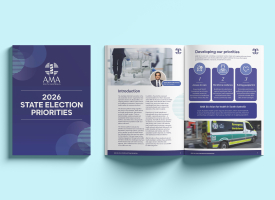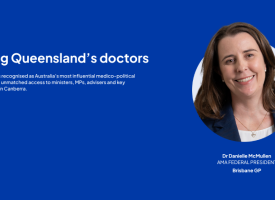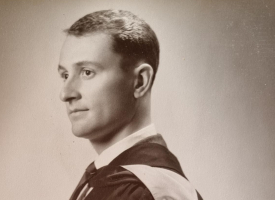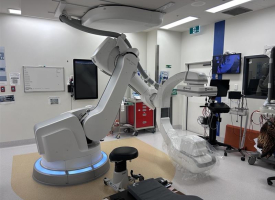Transcript: ABC Radio – Mount Gambier GP shortage
AMA SA President Dr John Williams responds to concerns about a GP shortage in Mount Gambier which is affecting the city's Urgent Care Clinic.
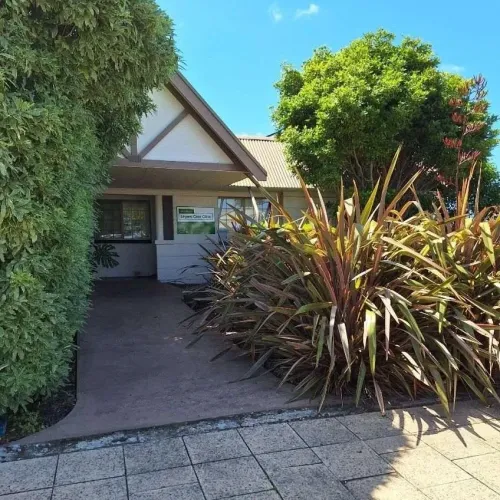
Transcript: AMA SA President Dr John Williams on ABC South East SA Breakfast with Conor Burke
(11 February, 2025)
Subjects: Medicare, general practice, primary care, urgent care clinics
Conor Burke: Dr John Williams is the South Australian president of the Australian Medical Association. He's on the phone with us now. Dr John Williams, thanks for joining us.
Dr John Williams: No problem.
Conor Burke: Now, there's a couple of things at play here, I guess. We've got a local clinic that's gone into liquidation, which could put pressure on the rest of the system here locally. But we've also got the issue of urgent care clinics. The federal government marketed the urgent care clinic model as a way to alleviate pressure on our hospitals. Is it working across the country, do you think?
Dr John Williams: It hasn't really addressed the core problem, which as you highlighted just a moment ago, is the number of doctors available, especially in rural areas. We know this is a long-term problem. What it needs is fixing at the root, which is the underfunding of Medicare.
Conor Burke: So, the model of contracting a local provider to operate the centre, is that not sustainable, you think?
Dr John Williams: No, not when it doesn't address the staffing problems, which is funding GPs to do the work.
Conor Burke: Right. And so, is that then the reason that we are seeing a lack of doctors? Is that because we are not funding them to come and do the work?
Dr John Williams: Correct. Medicare is the chief source of income for general practices. That's where most of the revenue comes to run the practice, and it has been chronically underfunded for more than ten years. So, the AMA is calling for modernising Medicare to help address this problem and also increasing the number of GP trainees. Modernising Medicare means that we need to fund and pay doctors to do longer consults so they can spend more time with their patients and really get to the core of the problem. General practice is the most effective and cost-effective part of our health system, so it urgently needs funding to modernise Medicare, improve funding, and increase the number of GPs.
Conor Burke: So, that lack of funding, is that causing GPs to leave the sector or causing doctors not to go into it? And is that why we have the lack of GPs?
Dr John Williams: Yes, both of those problems. It's not incentivised, it's not supported, it's not funded. If you want the work done, you need to pay for it. For every dollar spent in general practice, it saves the rest of the system $13. So, this is the best place to spend the public's money. It will be cost-effective, improve the health of the population, and reduce costs overall.
Conor Burke: Right. And so, then I'm guessing the other part of it you mentioned was attracting and getting more GP trainees, but I guess you can't do that if you don't fix the funding bit first.
Dr John Williams: Correct. And we'd also like to see an increased number of funded positions to train GPs. We have more and more women going into general practice, which is fantastic. So, we need to support them as well.
Conor Burke: Now, that all sounds pretty simple to me, Dr John Williams. So, why aren't we doing it that way?
Dr John Williams: You have to ask the (Health) Minister about that. The AMA has put forward a very clear proposal called Modernising Medicare. It is well-funded, well-supported, and researched, and it provides a strong model to go forward with.
Conor Burke: So, going back to this idea, what we're seeing here is that the operator we've mentioned has struggled to attract staff and has now gone into liquidation. What kind of pressure can you see this putting on other healthcare providers, losing one GP potentially? Obviously, the future of it is unclear at the minute. It is still trading, but there is a potential that it might not be here anymore. What sort of pressure could that put on a place like Mount Gambier?
Dr John Williams: Oh, absolutely. It'll be terrible. As you mentioned before, the patients are going there for help. Where do they go for help? They're trying to go to other practices, and if they can't get in there, they'll end up in ED, which will put more pressure on the hospital system. So, clearly, the best place to deal with it is in general practice. General practices across the country need support, especially in rural areas. It's always hard to get doctors in rural areas. I'm a rural GP myself, and I think it's a fantastic job, but we need to fund that and attract GPs into rural areas.
Conor Burke: So, could we see something like this, one clinic going under, potentially especially a clinic that is operating the urgent care clinic, would that increase hospital wait times and even ramping that we've seen throughout South Australia?
Dr John Williams: Yes. The clear way to reduce ramping statewide is to better support general practice and deal with the problem at the core. Help patients before they need ED to manage their mental health, chronic disease, and other complicated problems better. Then they'll need to go to ED less.
Conor Burke: If you're just joining us, we're talking with Dr John Williams, who is the South Australian president of the Australian Medical Association. Dr John Williams, I'm seeing something here reported by the Nine newspapers this morning. This is from your colleagues at the Royal Australian College of General Practitioners, who are calling for something that they say could save Australians $42 a visit to the GP. They're calling for Australians under 35 to have their GP visits bulk billed. Is that something the AMA would agree with?
Dr John Williams: Yes, anything to increase the value of the Medicare card in everyone's pocket. That's a card that funds general practice, and increasing the value of that to patients will absolutely help.
Conor Burke: Right. So, they're calling on the Health Minister to introduce bonus payments for doctors who choose not to charge young patients out-of-pocket fees.
Dr John Williams: I haven't seen that model in full. As I said, the AMA has drawn up the Modernising Medicare model, which puts over $4 billion into the health system over four years. So, that's a significant increase in funding to general practice to support longer consults and increase the value of the Medicare card to the patient.
Conor Burke: Now, I think all of these issues, especially as we struggle to get GP places, have really come to a head in the last few years, out of COVID. I think there's a lot of fatigue around with people who are trying to get into their GPs and see their GPs. On the other side, there's a lot of stress on the doctors. Are you finding that there's negative health effects of this? Are you finding some people maybe not going to the GP because it's just too hard, and then that having bigger effects down the line?
Dr John Williams: Absolutely. We know that there's a huge unmet need of people who have a chronic disease or ailment that they just haven't seen anyone about. That may come to a head when it's too late or when they're extremely sick. So, we really believe that all Australians should have excellent access to the health system as early as possible so that they can get the help they need as early as possible.
Conor Burke: Dr John Williams, how confident are you that the current Labor government or whoever eventually takes power come the election, which will take place this year, will tackle Medicare and enact some of the fixes and funding that you've mentioned today?
Dr John Williams: I really hope they do. It's the only way forward for our community to have universal access to effective health.
Conor Burke: Dr John Williams is the South Australian president of the AMA. Dr John Williams, thanks for coming on the programme.
Dr John Williams: No problem. Thank you.
